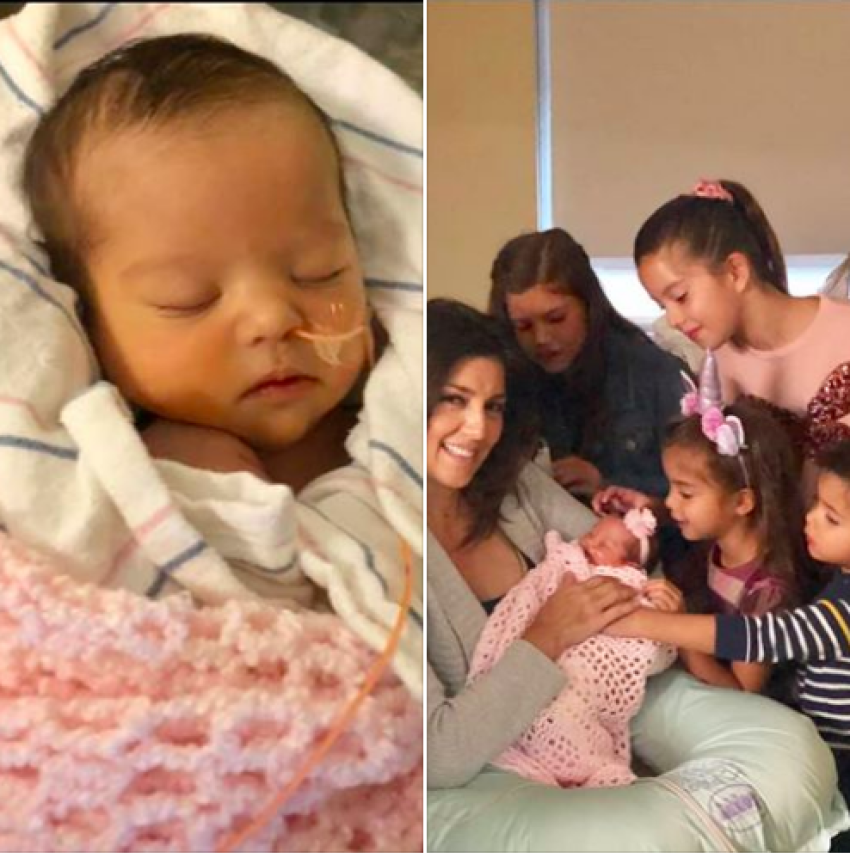Pro-life congressman, wife welcome 'perfect' baby girl with Down syndrome

Former U.S. Rep. Sean Duffy, R-Wisconsin, and wife Rachel Campos-Duffy have welcomed their ninth child, Valentina StellaMaris Duffy, into the world. The pro-life couple revealed the little girl has Down syndrome and a heart condition that will require surgery in just a few months.
On Facebook, Campos-Duffy shared a photo of Valentina and revealed she was born on Oct. 1, one month before her due date.
“She is doing great, though still in the NICU until she learns to eat on her own,” she wrote. “I’m home now, trying to recover from my first C-section (hats off to all the c-section moms out there - I had no idea!) and working hard with my breast pump to keep up with her growing appetite. When we visit with her at the hospital, the kids fight over who can hold her - I don’t blame them! She’s the sweetest, most perfect angel we have ever seen.”
Campos-Duffy revealed that Valentina was born with a heart defect and will need surgery in three to four months. Additionally, Valentina was born with an extra chromosome, which means she also has Down syndrome.
“That extra chromosome certainly made her EXTRA cute. Life is wonderful!!” she wrote. “Thank you to everyone who prayed for Valentina all these months - your prayers were never felt more than in the crazy hours before her emergency birth.”
In August, Rep. Sean Duffy, who speaks openly about his Christian faith, announced that he would be leaving his post in Congress to prepare for his daughter’s arrival. Duffy’s decision came after learning his ninth child had a heart condition and would require “even more love, time, and attention due to complications.”
His last day as a U.S. representative was Sept. 23.
“We believe in life, and whatever gifts God gives us, we accept them. And this is gonna be a great gift,” he said at the time. “Yeah, it’s going to be a little more stressful, but this little baby will have eight other siblings to wrap their loving arms around her, and we’re gonna do it as a family. We’ll figure out a different way to balance our lives.”
“This little baby couldn’t have a better, more loving home to come into,” Duffy added. “And we’re excited for her to come. And it’s gonna be easier for her, too, not to have her dad flying back and forth to Washington, D.C. … [But] I might come back to politics. I don’t know what I’m going to do. It’s just at this time, I need to take a moment and make sure Rachel and I and this baby are healthy and doing well.”
The Duffys also share eight other children who range in age from 3 to 20: Patrick Miguel, Margarita, Maria-Victoria Margarita, Paloma Pilar, John-Paul, Lucia-Belén, Xavier Jack and Evita Pilar.
During a July interview with National Review, Campos-Duffy said she and her husband have “taken each [child] as a blessing sent to me by God.” After sharing that her latest pregnancy “was kind of a surprise,” she went on to describe the “big role” faith plays in their family life, noting that it’s kept her marriage “strong and given us a sense of direction and purpose.”
“I think the family is only as strong as the marital unit,” Campos-Duffy explained. “I think that’s been really good for us in terms of sharing the most important and lasting values.”
Approximately six million children and adults around the globe have Down syndrome (also known as trisomy 21). In the United States, an estimated 67 percent of fetuses with prenatally diagnosed Down syndrome are aborted, according to statistics from The New York Times.
In an interview with The Christian Post, author Heather Avis, a mother to three adopted children — two of whom have Down syndrome — urged the Church to embrace those who act, look and grow a little differently. Doing so, she said, allows people to experience the fullness of God.
“When there’s a quiet moment in the church, if you’re not hearing any sounds, then chances are you don’t have people with different abilities in your church,” she said. “Notice who’s not in the room; who is missing in the room.”
Then, make space where everybody belongs.
“The thing with people with different abilities is that everyone is so different. It’s about meeting the needs of the individual where they’re at,” Avis said. “It’s as simple as asking parents, ‘what does your kid need?’ That’s huge.”
“I wish it was as simple as ‘do these five steps to be more inclusive,’ but really that’s not how this community works. It’s about meeting people where they are, creating genuine relationships, and being willing to adjust for the one. It’s the radical idea of, 100 of us are going to shift everything so one person can be a part of our church."



























